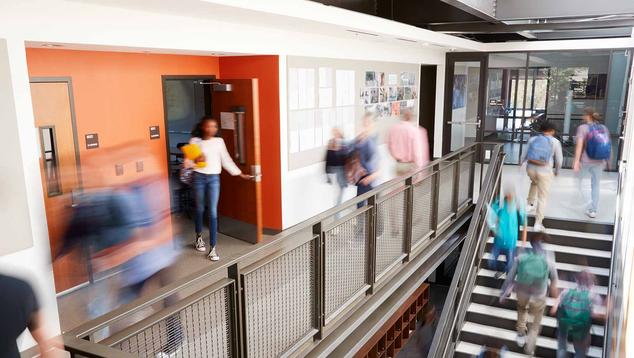Story Highlights
- Two in three Americans say the Supreme Court’s decision is “mostly a good thing”
- Black adults are split on whether the decision is good (52%) or bad (48%)
- 48% of Black prospective students say it impacts which schools they apply to
WASHINGTON, D.C. -- A Gallup Center on Black Voices survey finds that about two in three Americans (68%) say the Supreme Court’s June 2023 ruling to end the use of race and ethnicity in university admission decisions is “mostly a good thing.”
Black Americans are divided in their assessment of the decision, while majorities of Asian, White and Hispanic adults view the ruling mostly positively.
The court’s decision in Students for Fair Admissions v. Harvard ended race-conscious admissions programs at colleges in the U.S., reversing decisions by the court that had permitted the practice in the past. Previous Gallup polling found similar majorities of Americans, around 70%, had consistently favored colleges deciding admissions solely on merit rather than considering a student’s racial or ethnic background.
Black Adults Most Likely to View the Decision’s Impacts Negatively
Students currently applying to colleges are the first cohort in decades to apply without race being a possible consideration in any college’s admission decisions.
Although Black adults are divided on the appropriateness of the ruling, they are much more inclined to think it will have a negative than a positive (or no) impact on higher education, generally, and for members of their own racial group. About half of Black adults say the ruling will negatively impact higher education in the U.S. (50%) and the ability of applicants of their own race to attend college (52%). However, 33% of Black adults view the decision as a positive development, saying it will positively impact higher education, while 27% say it will make it easier for Black applicants. The rest view it as one that will not bear any consequences, with 17% saying it will not impact higher education and 22% saying it will make no difference to future Black college applicants.
In contrast, pluralities of Asian and White adults believe the decision will positively impact higher education in the U.S. Both groups are most likely to say the decision will make “no difference” for applicants of their own race to attend college.
Hispanic adults are most likely to view the decision as positive for higher education in the U.S. but are mixed evenly in terms of the impact on applicants of their own race.
All racial and ethnic groups are most inclined to think the decision will result in less, rather than more, diversity on college campuses. Black (49%) and Asian (57%) adults are most likely to believe this.
The Ruling Impacts Many Prospective Students’ Decisions
The 2023 Lumina Foundation-Gallup State of Higher Education study found that, among non-college graduates aged 18 to 59 who report having considered pursuing a bachelor’s degree in the past two years, nearly half of Black adults in this group (48%) say the ruling will have “a great deal” or “a fair amount” of impact on their decision about which colleges they might apply to.
The court’s ruling has a slightly smaller impact on the application decisions of Hispanic (43%) and White adults (39%) who have recently considered a degree. But the ruling weighs particularly on Asian adults in this group, of whom about three in four (73%) say the ruling will impact which colleges they apply to.
Bottom Line
The Supreme Court decision comes at a precarious time for Black Americans considering pursuing higher education, as Black enrollment has been on the decline for more than a decade and Black students are more likely than other students to be juggling competing priorities that hamper their ability to complete a degree.
The ruling, which the public views favorably and aligns with prior views on using race as a factor in college admissions, is now settled law. As the first cohort of students to apply to a post-affirmative action higher education system, the ruling has altered the calculus of those currently considering pursuing a degree -- including three in four Asian prospective students and half of Black prospective students.
While the ruling affects certain racial or ethnic groups of prospective students more than others, some applicants may feel empowered to apply to more selective schools, while others may be less likely to apply to such institutions.
Although the ruling receives fairly wide public support, predictions about the specific impact of the decision draw mixed responses across racial lines, underlining the uncertainty experienced by universities and students alike as they prepare for the next school year.
To stay up to date with the latest Gallup News insights and updates, follow us on X.
Learn more about how the Gallup Panel works.




